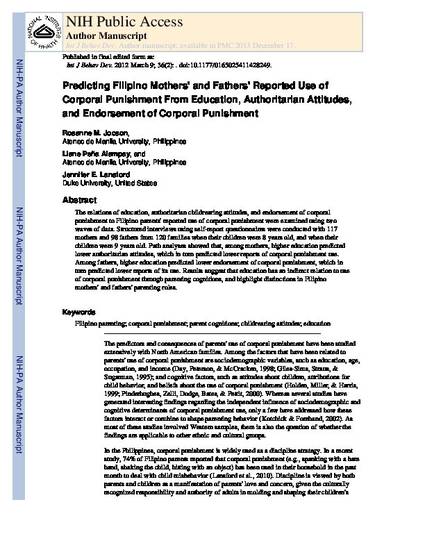
The relations of education, authoritarian childrearing attitudes, and endorsement of corporal punishment to Filipino parents' reported use of corporal punishment were examined using two waves of data. Structured interviews using self-report questionnaires were conducted with 117 mothers and 98 fathers from 120 families when their children were 8 years old, and when their children were 9 years old. Path analyses showed that, among mothers, higher education predicted lower authoritarian attitudes, which in turn predicted lower reports of corporal punishment use. Among fathers, higher education predicted lower endorsement of corporal punishment, which in turn predicted lower reports of its use. Results suggest that education has an indirect relation to use of corporal punishment through parenting cognitions, and highlight distinctions in Filipino mothers' and fathers' parenting roles.
